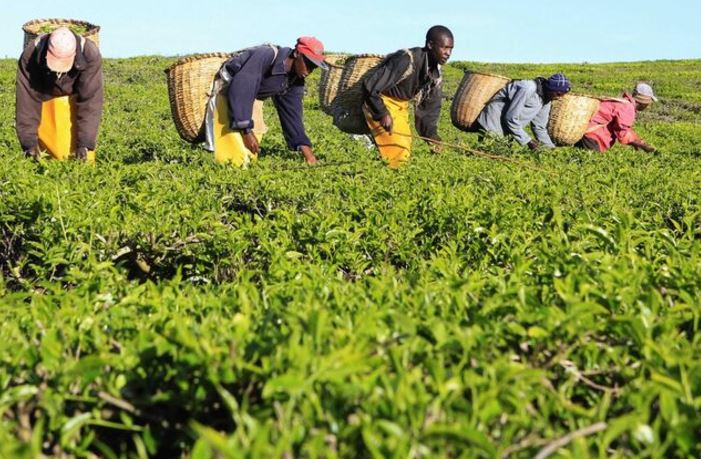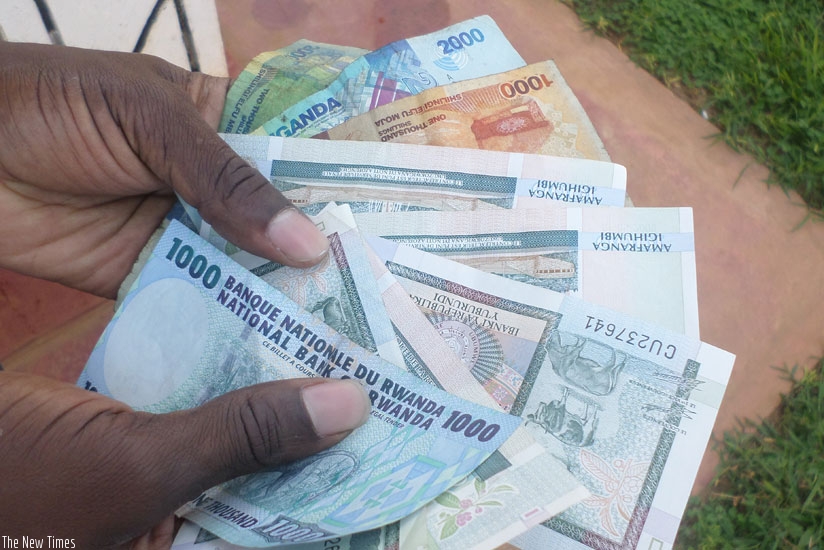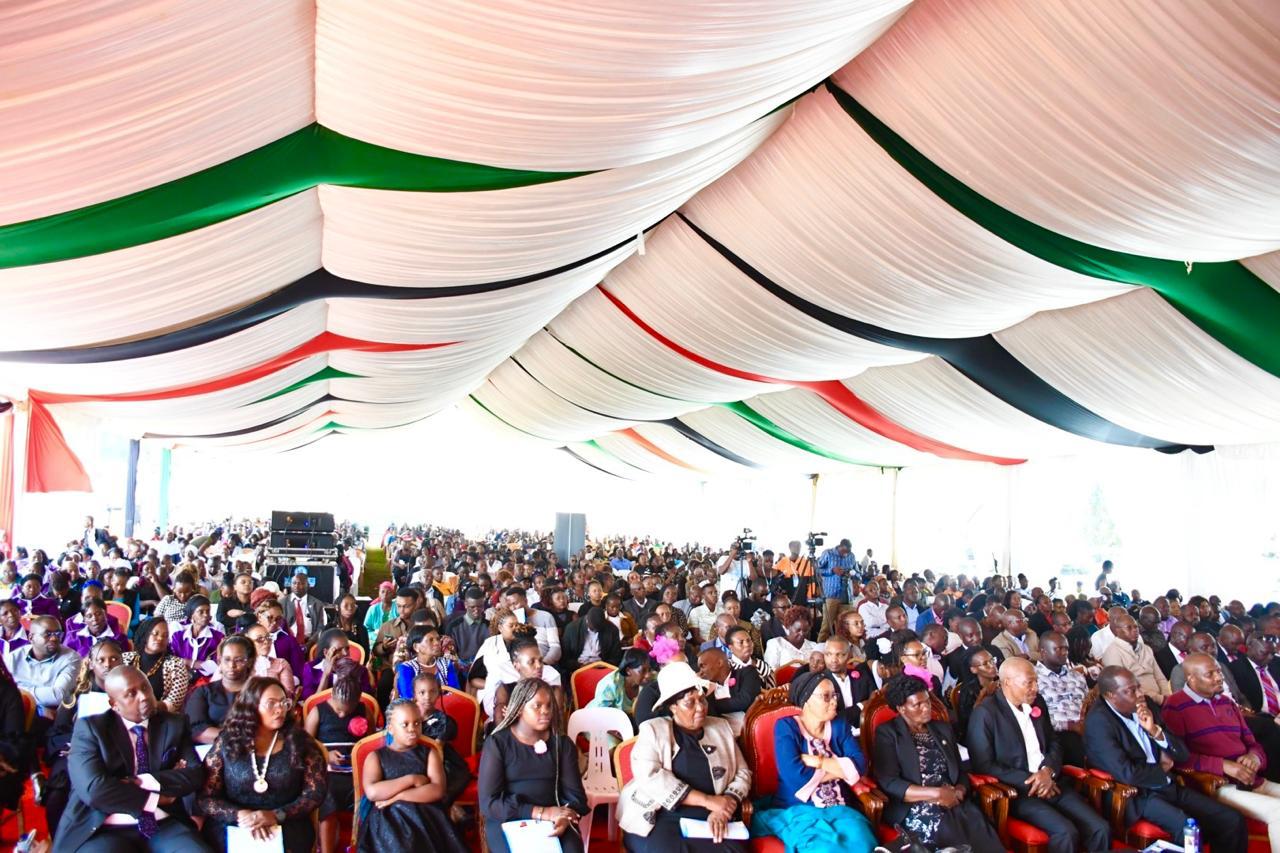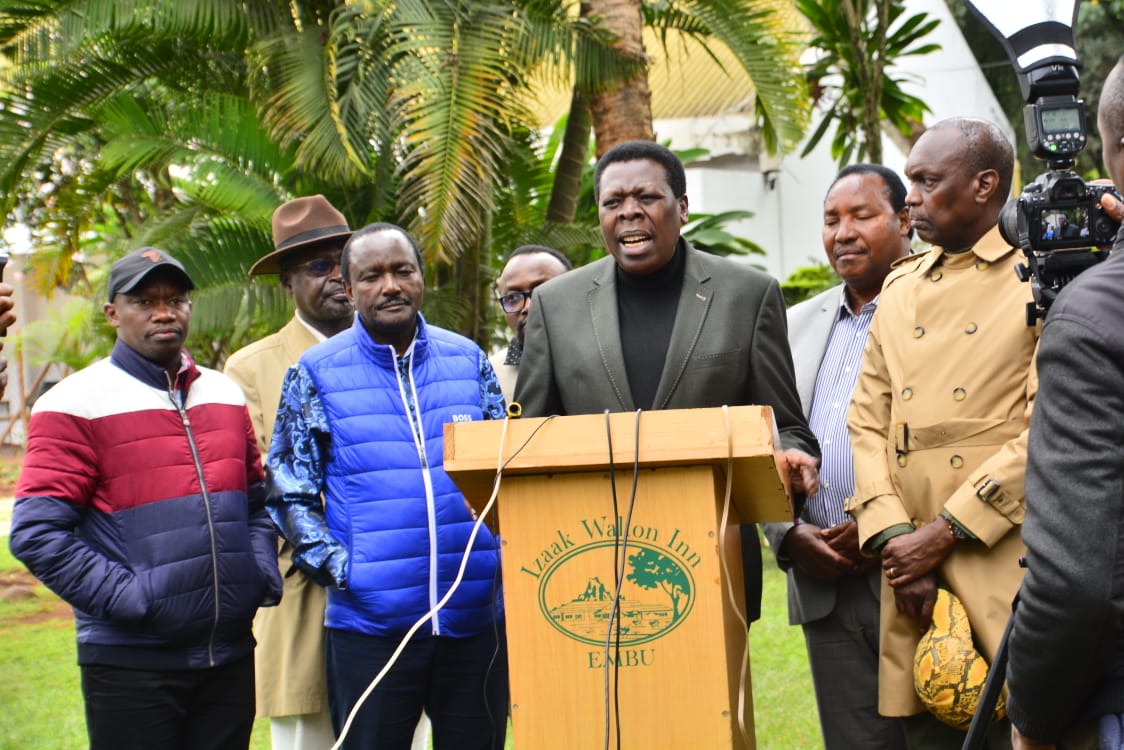State appoints taskforce to address Kenya’s tea crisis amid unsold stockpile

By Amina Wako |
The crisis has left an estimated 100 million kilos of black tea unsold from last year, putting financial strain on Kenya’s 800,000 tea farmers.
The Ministry of Agriculture has formed a taskforce to address what Cabinet Secretary Andrew Karanja described as "underlying causes and impacts" of the accumulation of unsold tea.
The sector faces a combination of local and global challenges, including unethical practices by brokers, erratic weather patterns linked to climate change, and logistical disruptions stemming from the ongoing Red Sea crisis.
Keep reading
The crisis has left an estimated 100 million kilos of black tea unsold from last year, putting financial strain on Kenya’s 800,000 tea farmers. Traditionally, these farmers relied on revenue from tea exports to sustain their livelihoods.
Karanja stated in a gazette notice on November 15 that "this taskforce will investigate the reasons behind this stockpile and propose short, medium, and long-term solutions to ensure the sector's sustainability."
The 14-member taskforce, chaired by Nicholas Munyi Kagua, will operate with a six-person secretariat.
Key issues it will tackle include the effects of the recently suspended minimum reserve price of Sh313.47 ($2.43) per kilo, warehousing challenges, and unfair trade practices along the tea supply chain.
Declining market value
Kenyan tea, once highly regarded globally, has faced declining market value. At a recent sale in September, Kenya’s tea fetched Sh285.09 ($2.21) per kilo, lagging behind Rwanda’s Sh518.58 ($4.02), the highest price among East African tea producers. Comparatively, Burundi’s tea sold at Sh288.96 ($2.24) per kilo, Uganda’s at Sh163.83 ($1.27), and Tanzania’s at Sh 148.35 ($1.15).
"Mismatch in tea price and quality has continued to negatively affect the East African tea sector, with prices per kilo reaching their lowest in three years," Karanja explained.
The Mombasa Tea Auction, the second-largest black tea auction globally, has struggled under the weight of these challenges. For the first time, the auction is grappling with rolling over massive volumes of unsold tea.
Farmers, already grappling with high costs of production and reduced earnings, are now further strained as they await payments delayed by unsold stock.
"Many farmers hoped this year’s harvest would bring better financial returns. Instead, they are facing uncertainty as warehouses overflow with unsold produce," said a tea dealer from Mombasa, citing the rising costs of storage due to warehousing shortages.
Climate change has compounded the logistical challenges by disrupting weather patterns, thereby affecting tea quality and yields. Moreover, global market disruptions linked to the Red Sea crisis have delayed shipments, further exacerbating the problem.
Deputy President Kithure Kindiki, speaking at the recent Kenya Tea Summit in Mombasa, pledged reforms to address the sector’s administrative and policy shortcomings.
"We must correct the market misfortunes affecting tea farmers. Their livelihoods depend on our actions," he said.
To address the systemic challenges, the Ministry of Agriculture is collaborating with government agencies to establish a Common User Facility (CUF) at the proposed Dongo Kundu Special Economic Zone. The initiative aims to support value addition and create more competitive products for the global market.
Reader comments
Follow Us and Stay Connected!
We'd love for you to join our community and stay updated with our latest stories and updates. Follow us on our social media channels and be part of the conversation!
Let's stay connected and keep the dialogue going!








